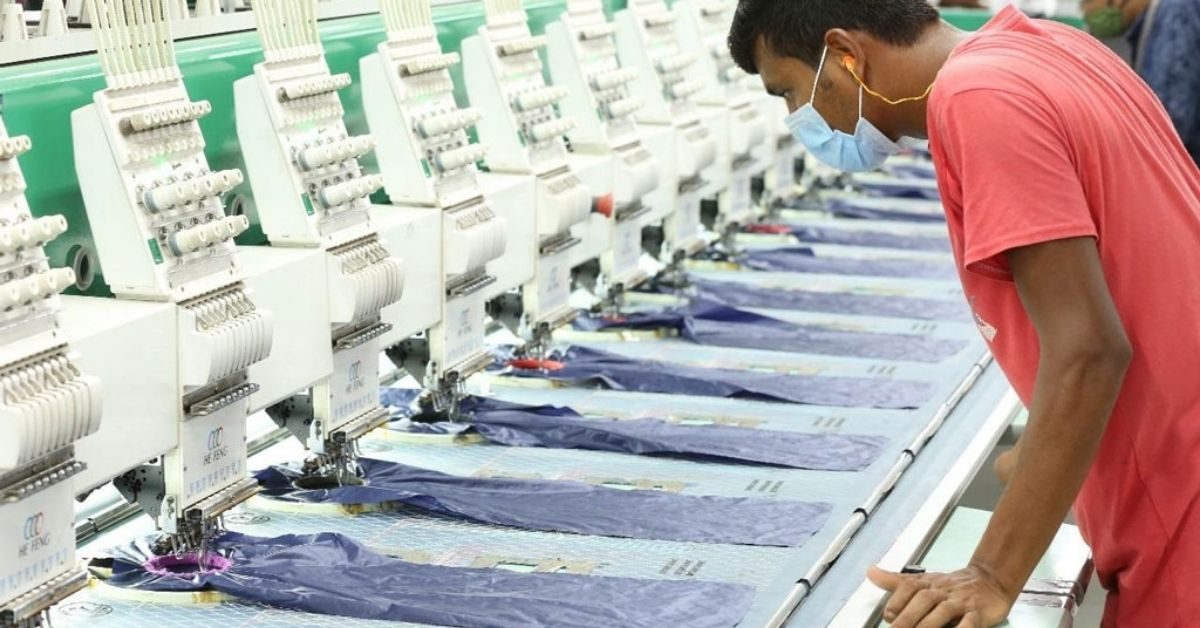Source: The Daily Star
The American Apparel and Footwear Association (AAFA), the National Retail Federation (NRF), the Retail Industry Leaders Association (RILA), and the United States Fashion Industry Association (USFIA), collectively made the observation in a letter to David Johanson, chair of the US International Trade Commission (USITC), on March 25.
The AAFA is the national trade association representing apparel, footwear and other sewn products companies and their suppliers and the NRF advocates for the people, brands, policies and ideas in the retail industry.
The RILA is the trade association for leading retailers while the USFIA represents textile and apparel brands, retailers, importers and wholesalers based in the US and doing business globally.
The four associations comprise hundreds of members, recording sales amounting to several trillion dollars annually.
The USITC is conducting an investigation — under the name of Apparel: Export Competitiveness of Certain Foreign Suppliers to the United States — into the sudden price hike and the supply glut of garment items to the US markets from five countries: Bangladesh, India, Indonesia, Cambodia, and Pakistan.
The joint letter comes two weeks after the commission held a hearing on the issue on March 11.
In the letter, the associations strongly disagreed with the move to raise the tariff rates on the imports of apparel items.
During the commission’s hearing attended by the leaders of the trade bodies, it was said that the US imposes higher most-favoured-nation duty rates on apparel products than nearly any other sector and factor into the cost competitiveness of source countries.
Bangladeshi apparel exporters are facing one of the highest tariffs at 15.62 percent in the US, which imported more than $116 billion worth of garment items last year. Bangladesh’s share stands at 9.3 percent.
Bangladesh, India, Indonesia, Cambodia, and Pakistan are, respectively, the third, fourth, fifth, sixth and the eighth largest apparel supplier to the US.
Bangladesh exports products such as denim, woven shirts, woven pants, t-shirts, active fleeces, and basic sweaters to the US.
Despite ineligibility for duty-free treatment under the generalised system of preferences (GSP), which excludes apparel products, the five countries remain competitive.
“In part, this reflects the important role these countries play for apparel brands and retailers’ broader supply chain diversification efforts,” the letter said.
“While some have suggested that the US should impose higher tariffs on apparel products from these and other countries, we strongly disagree.”
The leaders also said they experienced through the imposition of tariffs on products from China, tariffs increase costs for US businesses and American consumers, not for foreign exporters.
Tariffs are taxes that are paid by importers and eventually imposed on consumers. Current tariffs on apparel especially impact low- and middle-income consumers, who would be further harmed in the case of higher tariffs on clothing, the leaders told the hearing.
If the administration is serious about its desire for US companies to reduce dependencies on any single country, imposing tariffs on other source countries would be counterproductive, they said.
“Instead, we encourage the US government to take additional steps to help further accelerate the ongoing supply chain diversification efforts. This includes immediate retroactive renewal of the GSP programme, as well as expanding GSP to include certain apparel products.”
Currently, the US does not provide the GSP to any country. The tenure of the latest GSP programme came to an end in 2020 and the US Congress has not revived it since.
The US suspended the GSP facility for Bangladesh in 2013, citing poor labour rights and poor workplace safety following the Tazreen Fashions fire and the Rana Plaza building collapse.
The USITC heard during the hearing that the decision to source products from a particular country depends on a variety of factors.
They include vertical integration, speed to market, cost competitiveness, product capability, the skillset of the available labour force, geopolitical stability, proximity to raw materials, adherence to quality, social and environmental compliance standards, and capacity.
In the case of Bangladesh, India, Indonesia, Cambodia, and Pakistan, the members report that these countries have well-established textile industries, characterised by highly skilled labour forces and advanced sewing capabilities, the letter said.
“India and Pakistan are also vertically integrated. And increasingly, members report that apparel products sourced from Bangladesh, Cambodia, India, Indonesia, and Pakistan contain inputs also sourced from within these countries.”








